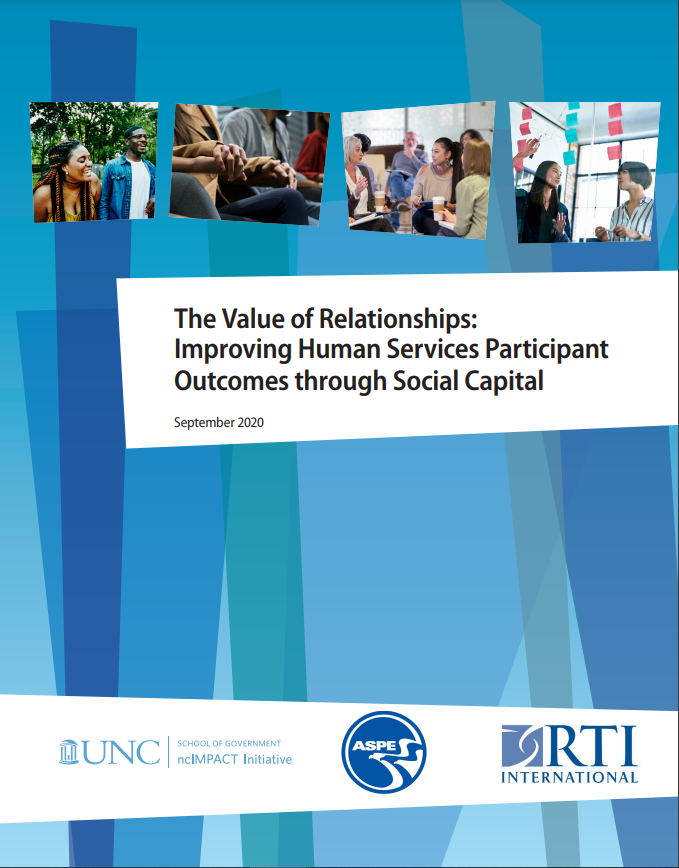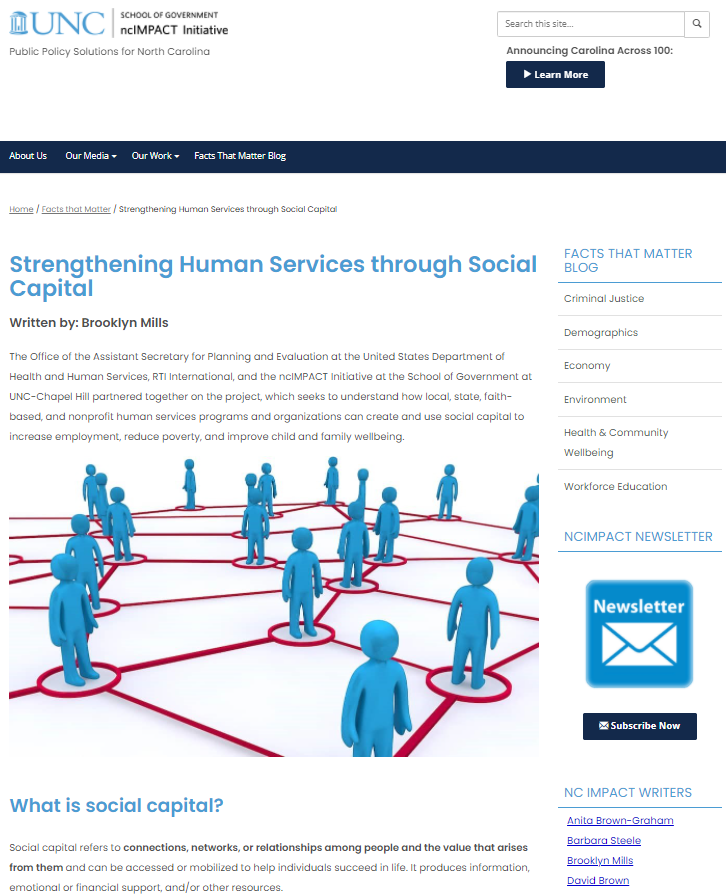Publications Search Results
Our Publication Search Results

The Value of Relationships: Improving Human Services Participant Outcomes through Social Capital
09/01/20Social capital focuses on the personal relationships and networks that each of us has and how we use them. For many human service program managers, social capital may be key to reaching program goals. In fact, whatever your role in the organization, your skill at helping participants build and benefit from their own social capital may in some cases be as central to your program’s success as securing funding.
…
Continued
NC Local Government Early Responses to and Insights into the Coronavirus Pandemic
08/01/20“Overwhelmingly and not surprisingly, given the unprecedented nature of the pandemic, three-fourths of respondents indicated they expected a negative impact on the local government due to COVID-19. Nearly all other respondents indicated that it was simply too soon to tell, with almost no respondents indicating no impact or a positive impact.
Just over ten percent of respondents chose to further explain their concerns. These respondents highlighted cancellations of in-person meetings, including public meetings; loss of funds, both for the government itself and the community; and, the adverse impacts for citizens, including food insecurity and unemployment as high concerns about negative impacts of the pandemic.”
…
Continued
Strengthening Human Services through Social Capital
06/17/20The Office of the Assistant Secretary for Planning and Evaluation at the United States Department of Health and Human Services, RTI International, and the ncIMPACT Initiative at the School of Government at UNC-Chapel Hill partnered together on the project, which seeks to understand how local, state, faith-based, and nonprofit human services programs and organizations can create and use social capital to increase employment, reduce poverty, and improve child and family wellbeing.
…
Continued